Portraying the Mexican-American Experience in Six Hours
"A Mexican Trilogy: An American Story" is an epic production for the Latino Theater Company’s epic anniversary: telling the stories of its often-ignored community for 30 years.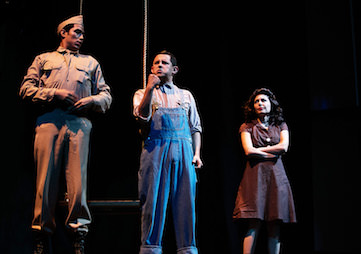
Julio Macias, Xavi Moreno and Ella Saldaña North perform in “A Mexican Trilogy: An American Story.” (Grettel Cortes Photography)
Playwright Evelina Fernandez went back and forth on the title of her opus, “A Mexican Trilogy: An American Story,” playing at The Los Angeles Theatre Center (LATC) downtown through Oct. 9.
Beginning in Mexico, but set mostly in the United States, the play chronicles the generations of a family through landmark historical events like World War II, the Cuban missile crisis, and the Vietnam and Afghanistan wars, leaving many of her friends wondering why it was called “A Mexican Trilogy” when so much of it was about the American experiment. “The root is Mexico but the story is America,” is what Fernandez finally decided. “It just depends on where you fit in that spectrum.”
A second-generation Mexican-American, Fernandez knows where she fits. A veteran of L.A.’s Latino Theater Company (LTC), she has teamed with her husband, director Jose Luis Valenzuela, to present, for the first time, all three parts of “A Mexican Trilogy” at once — a six-hour marathon. For those with less stamina, the show can be viewed in two parts over Thursday and Friday nights.
Yes, it’s an epic running time, but it’s to mark an epic event: LTC’s 30th anniversary, and its 10th working with LATC, where Valenzuela is artistic director.
“It’s very important for our community to understand that theater is an art form that has a relationship to society,” said Valenzuela, distinguished professor and head of the MFA directing program at UCLA’s School of Theater, Film and Television. “The community is more diverse. L.A. is an amazing city because of this diversity.”
After “A Mexican Trilogy” premiered in segments in 2013, Fernandez received a Los Angeles Drama Critics Award for outstanding writing of a world premiere play. An L.A. native, she grew up under the watchful eyes of three portraits in her grandparents’ east-side living room — Franklin D. Roosevelt, John F. Kennedy and Pope John Paul II. Roosevelt is president during the first part of the trilogy, “Faith,” following the Morales family in the mining community of Jerome, Ariz. Kennedy is president in the second section, “Hope,” set in the Phoenix family home during the Cuban missile crisis. And Pope John Paul II dies in 2005, the backdrop of the third installment, “Charity,” set in L.A.
For Fernandez, the second part is the most autobiographical. “During the Vietnam War there was such a disproportionate number of Mexican-Americans being drafted and killed in Vietnam — blacks and Mexicans. So I got involved in that movement,” she recalled about joining the Chicano movement. “Out of that there was a theatrical movement, which is the Chicano Theater Movement. It was very, very, very political.”
She was referring to El Teatro Campesino, which originated during the Delano Grape Strike of 1965. Formed by the legendary Luis Valdez, the company entertained picketers supporting the United Farmworkers Union, organized by Cesar Chavez. El Teatro performed on the back of flatbed trucks and in union halls. Valdez went on to become a transformative figure in Chicano theater, writing “Zoot Suit,” a breakout Broadway play that originated at L.A.’s Center Theatre Group, where Fernandez got her first big break. The musical will be revived later this season, roughly 40 years after its premiere.
“There’s a huge push for diversity in the American theater movement,” noted Fernandez, adding, “That’s one reason it’s being produced again. The other is, I think, there’s a huge push in Los Angeles: Why aren’t we seeing our story on the stage?”
Valenzuela remains unsatisfied with the pace of progress, noting the absence of people of color on the main stage, despite the revival of “Zoot Suit.” “We’re supposed to serve that community of artists, the new writers, new actors,” she said. “That’s the responsibility of theater makers, to reflect what the city is. It’s how we talk about society.”
While the subject of diversity in entertainment has been a hot topic, a recent USC Annenberg study indicates that the hiring and casting of people of color in Hollywood continues to be grossly disproportionate to their numbers in the population. Although greater diversity in television was showcased at the recent Emmy Awards, Fernandez, like many, believes real change won’t happen until there is equal representation among Hollywood’s monolithically white ranks of decision-makers. As members of the National Hispanic Media Coalition, Fernandez and Valenzuela have grown frustrated meeting with network executives to discuss the topic. “So many times it’s just about going through the motions of having a meeting and saying they’re meeting and talking,” she said, “but the numbers don’t reflect that.”
After years of half-empty houses, LATC faced an eviction order from the City Council in 2012 for what was considered vague accounting practices. An agreement was reached later that year, and Valenzuela said they now hold the lease for the next 25 years. If recent box office numbers are any indication, the future looks bright, thanks in some part to changing demographics downtown, the same kind of gentrification impacting traditional Latino communities throughout Los Angeles and the east side in particular — threatening the very cultural roots that LATC aims to celebrate.
“The borders are going to disappear,” said Valenzuela, who has mixed feelings about the changes. “What’s happening with gentrification: The L.A. River used to be the border. You didn’t go to the other side ’cause that’s where the Mexicans live.
“But now people live everywhere. Other communities are beginning to cross the border. It’s an incredible time for Los Angeles.”
Independent journalism is under threat and overshadowed by heavily funded mainstream media.
You can help level the playing field. Become a member.
Your tax-deductible contribution keeps us digging beneath the headlines to give you thought-provoking, investigative reporting and analysis that unearths what's really happening- without compromise.
Give today to support our courageous, independent journalists.
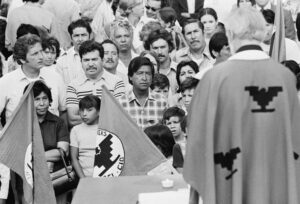
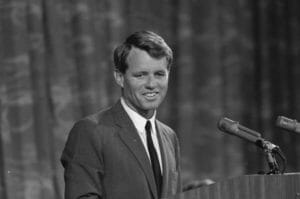
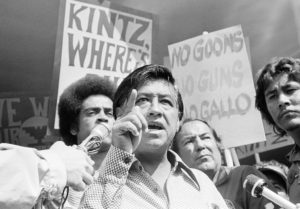
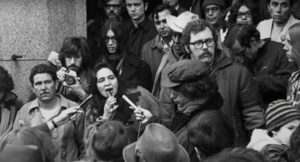
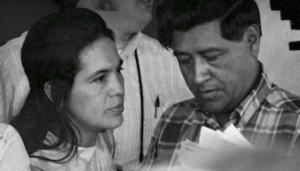
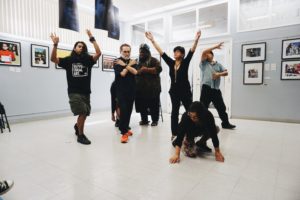
You need to be a supporter to comment.
There are currently no responses to this article.
Be the first to respond.